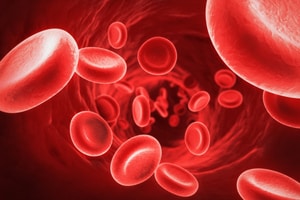
Boehringer Ingelheim has teamed up with the American College of Cardiology (ACC) and the Chinese Society of Cardiology (CSC) on a new an educational programme for physicians in China.
Its focus is to improve understanding of stroke prevention in atrial fibrillation (AF), something Boehringer, whose key brand in the area is Pradaxa (dabigatran) says is currently chronically under-treated in the country.
Educational sessions will take place in hospitals across China, with a target of reaching more than 4,000 cardiologists during 2013.
Professor Klaus Dugi, corporate senior vice president medicine, Boehringer Ingelheim, added: “In addition to developing innovative treatment options like Pradaxa, Boehringer Ingelheim is proud to support educational programmes across the world that help to encourage optimal management of patients with atrial fibrillation. We hope that the programme will help to advance patient care across China.”
Following a series of ‘Train the Trainer’ meetings during January 2013, 10 pilot centres are now being set up throughout China, which will offer lectures and face-to-face exchanges in hospitals with local and global experts in AF. The contents of the lectures will be based on actual clinical practice to address the ‘real needs of China’.
“The Train the Trainer meetings have allowed us to build a firm foundation from which to undertake peer-to-peer sharing of medical knowledge, expertise and clinical skills,” stated Professor John Camm, head of the Division of Cardiac and Vascular Sciences at St. Georges Hospital, UK.
“Working together we hope to standardise the care of patients with AF in China throughout 2013.”
Prof Dayi Hu, president of the CSC, added: “The first expert consensus on AF anticoagulation treatment in China has identified the importance of primary and secondary stroke prevention for patients with AF.
“AF leads to a five-fold increase in the risk of stroke, especially the risk of ischaemic stroke, which accounts for 92 per cent of all AF-related strokes.
“There is still considerable misunderstanding amongst Chinese doctors on the role of anticoagulant treatments, such as warfarin for stroke prevention in AF patients, leading to significant and widespread underuse.
“In light of the recent innovations in the field and the introduction of novel oral anticoagulants, physician education is even more crucial for improving patient outcomes.”




